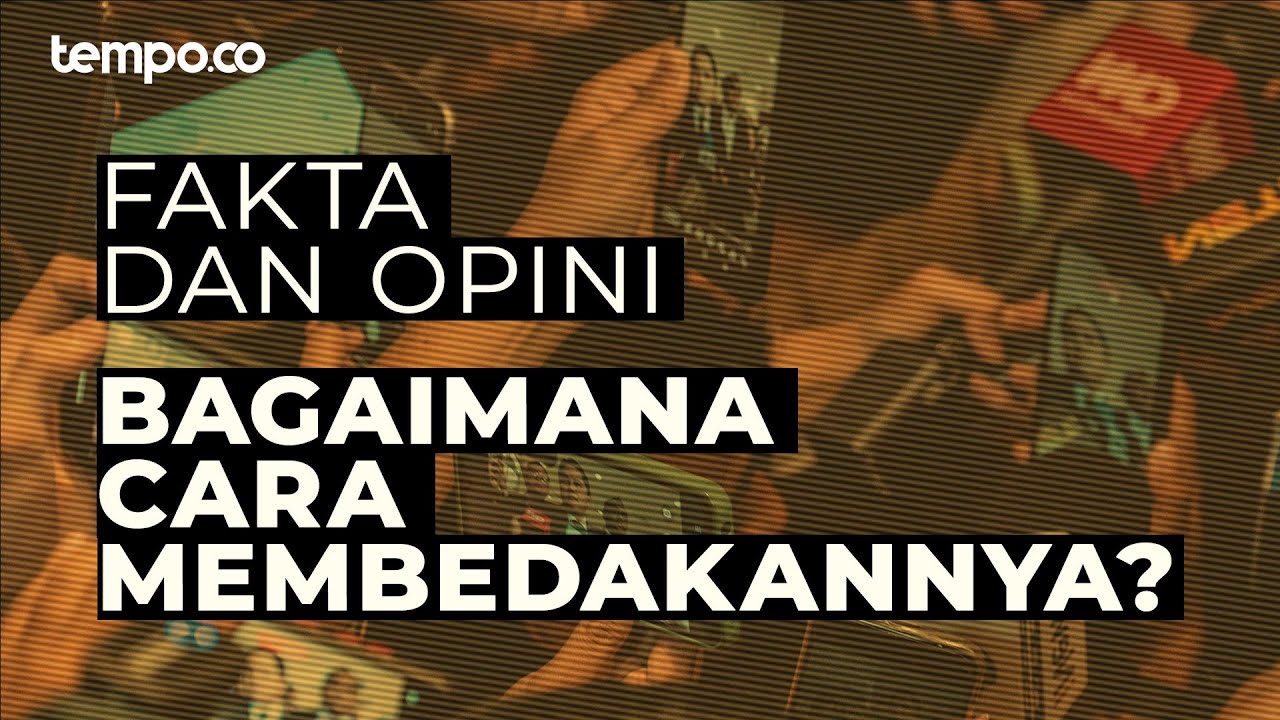The Fact/Opinion Distinction
Summary
TLDRJohn Corvino explores the blurred lines between facts and opinions, challenging the conventional wisdom that facts are objective realities while opinions are subjective beliefs. He critiques the misuse of the fact/opinion distinction as a conversational barrier, advocating for a more productive dialogue by focusing on evidence and reasons behind controversial views rather than categorizing statements.
Takeaways
- 📚 Opinions and facts are often confused, and their distinction is not always clear-cut.
- 🌐 Facts are objective realities of the world, while opinions are subjective beliefs about the world.
- 🍺 The script uses the example of beer in a refrigerator to illustrate the difference between a fact and an opinion.
- 🍻 Taste preferences, like preferring Corona over Budweiser, are clearly categorized as opinions.
- 🤔 The term 'opinion' is used more broadly than just matters of taste, extending to beliefs and philosophical debates.
- 🙏 The existence of God is presented as an example where people incorrectly label beliefs as opinions, despite the objective nature of the question.
- 🔄 The script points out that the fact/opinion distinction is often muddled, even by experts in critical thinking.
- 💬 Using 'opinion' as a conversational tool can be dismissive and can halt productive dialogue.
- 🚫 Saying 'That's just your opinion' or 'I'm entitled to my opinion' can be used to avoid engaging with evidence and criticism.
- 🤝 Instead of focusing on whether a statement is a fact or opinion, it's more productive to ask for evidence and reasoning behind controversial views.
- 🗣️ Engaging in dialogue by asking for evidence promotes a more constructive conversation rather than shutting down debate.
Q & A
What is the main issue discussed in the script regarding the distinction between facts and opinions?
-The script discusses the confusion and the mess in distinguishing between facts and opinions, and how this distinction is often misused to stop conversations rather than to foster critical thinking.
What is the initial simple distinction made between facts and opinions in the script?
-The initial distinction is that facts constitute the world, while opinions are our beliefs about the world, with some beliefs being true and others false.
Why does the script suggest that the simple distinction between facts and opinions is not helpful?
-The script suggests that the simple distinction is not helpful because people often categorize beliefs into facts and opinions incorrectly, leading to confusion.
What is an example of a belief that is considered a matter of fact in the script?
-The example given is the belief that there is beer in the refrigerator, which is a matter of fact because it can be objectively verified.
What is an example of a belief that is considered an opinion in the script?
-The example given is the belief that Corona tastes better than Budweiser, which is an opinion because it is based on personal preference.
Why does the script argue that the term 'opinion' is used more broadly than just matters of taste?
-The script argues that 'opinion' is used more broadly because people often apply it to beliefs that are not based on personal preference, such as beliefs about the existence of God.
What does the script identify as the problem with using the term 'opinion' in debates about the existence of God?
-The script identifies the problem as mislabeling the belief about God's existence as a matter of opinion, when in fact, if God exists or not is a matter that can be objectively true or false, not a matter of taste.
What does the script suggest is the result of mixing up different distinctions related to facts and opinions?
-The script suggests that mixing up different distinctions leads to a lack of clarity and precision in discussions, which is described as sloppy and not critical thinking.
How does the script describe the misuse of the fact/opinion distinction in conversations?
-The script describes the misuse as a conversation-stopper, where saying 'That's just your opinion!' dismisses the other person's argument, and saying 'I'm entitled to my opinion' insulates oneself from criticism.
What alternative approach does the script recommend for engaging with controversial views?
-The script recommends asking for evidence and reasons behind a controversial view instead of focusing on whether it is a fact or an opinion, which can lead to a more productive conversation.
Who is the speaker in the script and what is the title of the series?
-The speaker is John Corvino, and the title of the series is 'Better Argument'.
Outlines

Cette section est réservée aux utilisateurs payants. Améliorez votre compte pour accéder à cette section.
Améliorer maintenantMindmap

Cette section est réservée aux utilisateurs payants. Améliorez votre compte pour accéder à cette section.
Améliorer maintenantKeywords

Cette section est réservée aux utilisateurs payants. Améliorez votre compte pour accéder à cette section.
Améliorer maintenantHighlights

Cette section est réservée aux utilisateurs payants. Améliorez votre compte pour accéder à cette section.
Améliorer maintenantTranscripts

Cette section est réservée aux utilisateurs payants. Améliorez votre compte pour accéder à cette section.
Améliorer maintenantVoir Plus de Vidéos Connexes

Philosophy And . . . Fact and Opinion

TOPIK B : FAKTA DAN OPINI | BAB 3 | KELAS 6 BAHASA INDONESIA | SEMESTER 1

MATERI UTBK SNBT LITERASI BAHASA INDONESIA - FAKTA DAN OPINI

Facts and Opinions | English Writing Skills

Fakta dan Opini Materi Bahasa Indonesia Kelas 5 Kurikulum Merdeka

Fakta dan Opini, Ini Ciri-Ciri Dan Perbedaannya
5.0 / 5 (0 votes)
